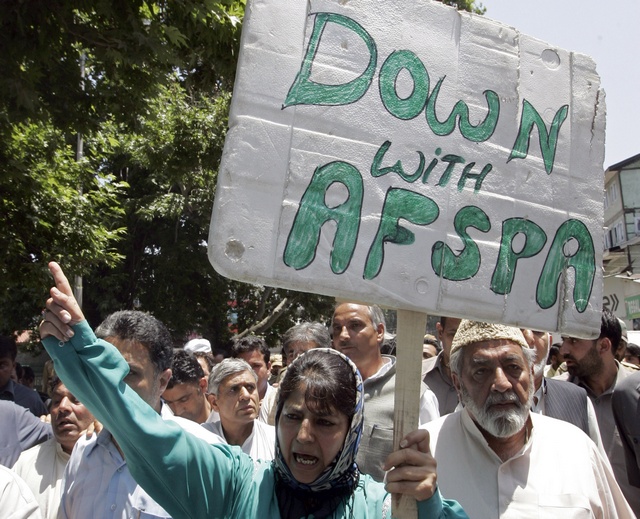Article 370 Becomes The Poll Issue, Chenab The Key to The Jammu And Kashmir Polls
It is not AFSPA but Article 370 that seems to have become central

NEW DELHI: The first phase of polls will be held in Jammu and Kashmir on Tuesday in perhaps the most crucial constituencies in these elections. The six Assembly segments constituting the Chenab Valley will go to the polls with the BJP on a major offensive to wrest these from the Congress that had won five seats in the last elections.
Chenab is peculiar to Jammu and Kashmir as it has high populations of both Muslims and Hindus, with the former having a slight edge. Reports suggest attempts for a massive polarisation with RSS workers flooding the area for a house to house campaign. The BJP has focused on these seats, as it is fairly confident of the other constituencies in Jammu and Ladakh, but a turn around here in its favour will go a long way in bringing to power in the state.
The Congress party that is relying entirely on the goodwill for its leader Ghulam Nabi Azad finds itself on a back-foot, having lost considerable ground across the state. The National Conference that has some presence is weak now and unable to hold its own, while the Peoples Democratic Party is on the upsurge but has to contend with the polarisation and the fact that the Muslim vote will be divided between all the other political parties. A section of it will also be impacted by the boycott call given by Hurriyat leader Ali Shah Geelani.
Azad has accused the BJP of polarising the votes,and is clearly concerned about the Congress performance in this part with the ground having disappeared rapidly from under the party’s feet.
Significantly it is not the Armed Forces Special Powers Act but Article 370 that seems to have become central to these elections. The BJP has spoken at different levels in two voices, supporting the abrogation of Article 370 and withdrawing its remarks. Its local candidates in the Kashmir Valley have publicly opposed the official BJP position, although this is meaningless as the RSS,BJP and the front organisation have made it clear that there will be no shift in their longstanding position on Article 370 For the purpose of the Jammu and Kashmir elections the local BJP unit is maintaining a stoic silence, and keeping away from this ‘controversy’ for the moment.
The National Conference and PDP continue to trade blows on Article 370, with both accusing the other of playing foul. NC chief minister Omar Abdullah has been speaking out in strong support of the Article, insisting that the PDP has secretly compromised its position. PDP leaders have accused the NC of presiding over the dilution of Article 370 and paying little more than lip service to the issue. The rise of the BJP in Jammu and Kashmir in these elections, however, underlines the new central government policy that rests in the abrogation of the Article that gives special status to the border state.
Conventional wisdom arising from ground reports places the PDP in the lead in the Kashmir Valley and the BJP set to sweep Jammu and Ladakh. The BJP remains optimistic about closing in on its Mission 44 plus although reports from the state still do not repose much faith in this figure. However, it can be said with some confidence that the toss up is between the BJP and the PDP for the single largest party status, with this eventually determining who will lead the government in the state.



